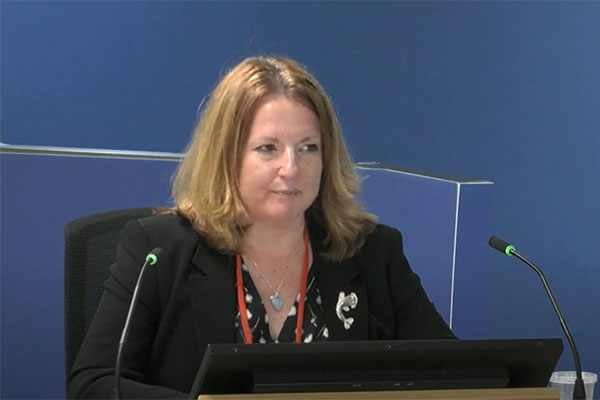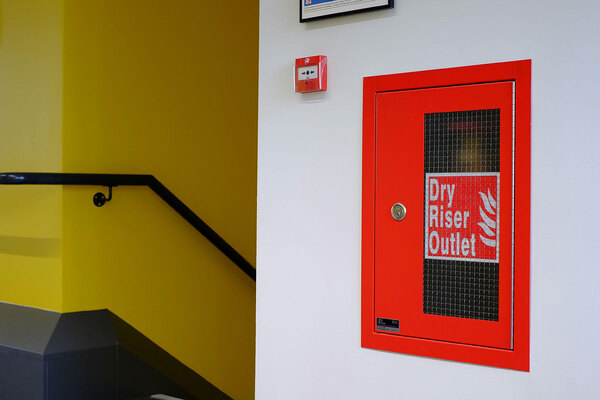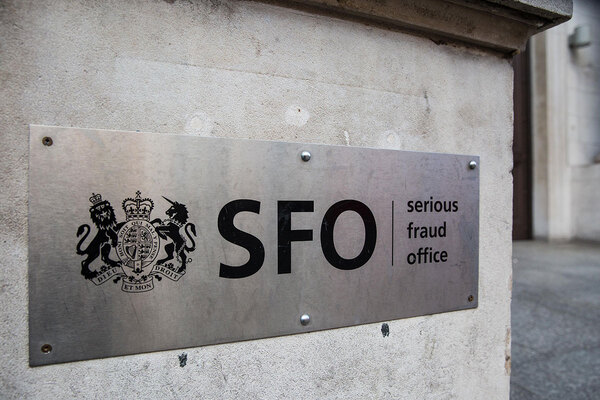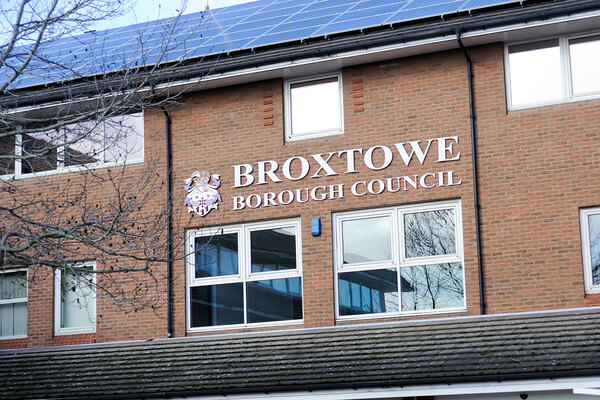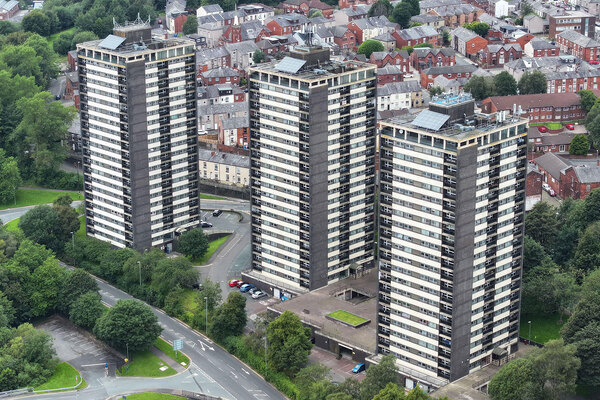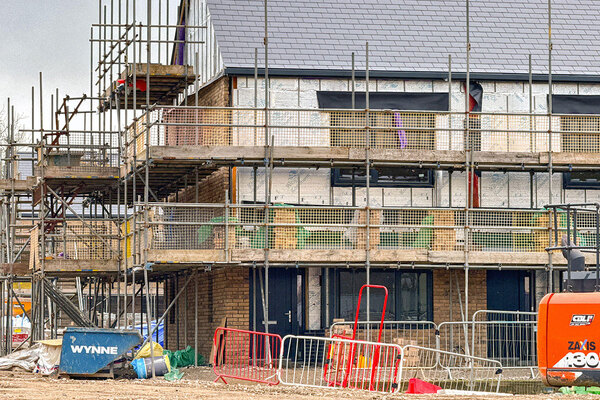Grenfell council housing lead says he ‘does not know’ of anything he could have done differently
The councillor responsible for housing during the Grenfell Tower refurbishment has said he “does not know” of anything he could have done differently in relation to the tower’s fateful refurbishment.
Rock Feilding-Mellen, the former deputy leader and cabinet member for housing at the Royal Borough of Kensington and Chelsea (RBKC), completed his evidence to the inquiry today.
He accepted that he had based his belief that fire safety was being properly dealt with in the borough’s housing stock on assumptions, despite specific London Fire Brigade guidance warning against this approach.
But asked what he would change about his actions in the events leading up to the disaster, which killed 72 people, he said: “Based on the information I had and given what I considered my roles to be, I really don’t know what I could have done differently.”
He added that he did wish “from the bottom of my heart” that things had been done differently and said he would accept any findings from the inquiry about what he or the council could have done.
“I know that the sorrow and the pain that I have experienced over the last four years, is nothing compared to what must be unbearable grief, that those who lost their loved ones have had to suffer,” he said.
Earlier, he was shown emails from July 2017 in which he was sent London Fire Brigade documents prepared to advise councillors on questions to ask regarding fire safety following the Lakanal House fire which killed six in 2009.
Mr Feilding-Mellen said that “I think I had heard of it” when asked about this fire, but that he did not remember reading the coroner’s recommendations published in spring 2013.
The document suggested that the councillors should ensure there were appropriate evacuation plans in their high-rise buildings and specifically suggested policies to ensure modifications did not reduce the fire performance of buildings.
“I was conscious that there were many layers of people with what I thought was the relevant expertise, and indeed the role, to check the health and safety generally, including fire safety aspects of a refurbishment project like this,” he said.
He was then shown a passage in the document which said that councillors should not “make assumptions that fire safety is being actively or effectively managed in purpose-built blocks of flats in your borough”.
“On what you told us this morning, Mr Feilding-Mellen, you were making exactly the assumption that this document advised you should not make,” said Richard Millett QC, lead counsel to the inquiry.
“That appears to be the case,” said Mr Feilding-Mellen.
The inquiry was also shown further emails that showed Mr Feilding-Mellen getting involved in a debate about the colour choice for Grenfell Tower’s new cladding – including arguing that the green panels around the entrance should be “a more pastel shade or a deeper/darker British Racing green”.
“An opportunity to ask these questions [about fire safety] would or could have been during your dialogue with Peter Madison over the colour of the cladding panels,” said Mr Millett.
“It would or could have been any number of occasions,” replied Mr Feilding-Mellen.
The exchange of emails about the colour came as planners at RBKC considered the switch of the zinc cladding for the cheaper and more combustible aluminium composite material (ACM), which was ultimately used.
Mr Feilding-Mellen told police he was not aware of this change until after the fire, but today an email was presented showing that he was told by a manager at Kensington and Chelsea Tenant Management Organisation (KCTMO) in July 2014: “We were hoping to achieve savings by negotiating with the planners over the cladding material, aluminium instead of zinc.”
Mr Feilding-Mellen said: “To me, my interpretation of that sentence would be that’s something which we have been hoping [to achieve] but we’re not necessarily doing.”
The inquiry saw later emails following a meeting with David Collins, a resident of the tower, where Mr Feilding-Mellen was asked “if anything had changed in his thinking” as a result of concerns about the Grenfell Tower regeneration project.
Mr Feilding-Mellen wrote to his director of housing to ask if she could “think of any small concession we can think of offering”.
“It reads as if you were looking for something you could fob Mr Collins off with,” said Mr Millett.
“I totally disagree with that,” said Mr Feilding-Mellen.
Mr Feilding-Mellen was followed by former council leader Nicholas Paget-Brown.
Asked if he felt there were enough council officers scrutinising the performance of KCTMO, which managed the borough’s 9,000 council homes, he said: “There were all sorts of pressures on capital costs and spending. So I think if there had been a suggestion that we have many more officers, I probably wouldn’t have reacted terribly warmly towards it.”
He said he was not aware that the borough did not have any ‘key performance indicators’ to monitor KCTMO’s performance with regard to fire safety.
“Isn’t that something you should have known as leader, namely that there was no KPI used by RBKC from monitoring TMO activity in respect of fire safety?” said Mr Millett.
“In retrospect, yes, I should have known that but I didn’t know at the time and it wasn’t something which I was aware of or concerned about but I should have been, I’m sure,” he said.
The inquiry continues tomorrow with further evidence from Mr Paget-Brown.
Sign up for our weekly Grenfell Inquiry newsletter
Each week we send out a newsletter rounding up the key news from the Grenfell Inquiry, along with the headlines from the week
Already have an account? Click here to manage your newsletters
Related stories

